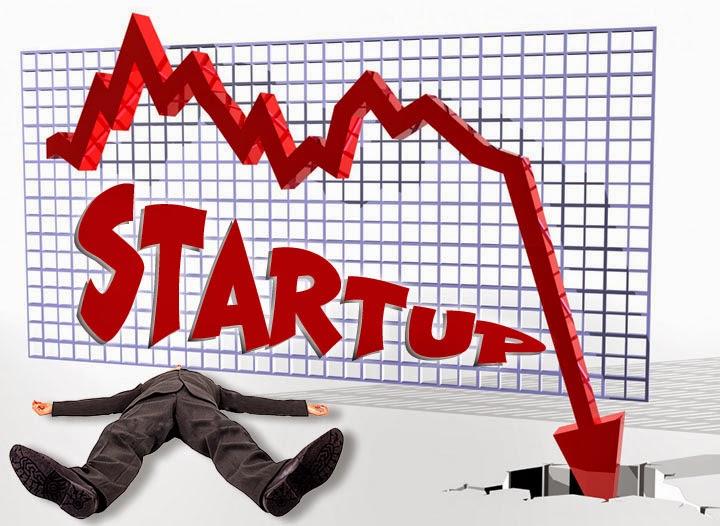Investing in startups attracts many people eager to profit from innovative ideas and new technologies. However, as interest in this market segment grows, so does fraud. Understanding the risks associated with investing in startups can help you avoid losses and protect your funds. We will consider the main aspects to take into account before investing in startups, as well as signs of fraudulent schemes and outstanding projects.
How do startup investments work?
Investing in startups means you are providing capital to a new company that is just starting its operations. In exchange for capital, you receive a share in the company. The main attraction of such investments is the high potential for profit. Successful startups can achieve significant growth and multiply the initial investments. However, unfortunately, many startups fail, and investors lose their money.
There are several forms of startup financing, including:
- Bank loans: they usually require collateral and pose a high risk for startups without a stable financial history.
- Angel investing: Private investors willing to provide capital in exchange for a share in the business.
- Venture investment: This is a more formalized process where venture capital firms invest in more mature startups.

Each of these options has its pros and cons, and it is important to thoroughly analyze each opportunity.
Signs of fraudulent startups
Despite the possibility of successful investments, you should be cautious. Fraudulent startups often represent carefully disguised schemes that only seem attractive. Here are some signs that a startup may be fraudulent:
- Lack of transparency. Fraudulent companies often do not provide sufficient information about their activities. If a startup refuses to provide its financial reports, business plan, or information about the team, this should raise concerns.
- Promises of high returns. If someone promises guaranteed or excessively high returns, it is either inexperience or intentional deception. Investments are always associated with risk.
- Complex schemes. If the business plan is too complicated to understand or requires multi-level structures, it may be a sign of fraud.
- Strong pressure for quick decision-making. Fraudsters often force potential investors to make decisions under pressure. If you are rushed to invest money without proper analysis, be careful.

The prevalence of fraudulent schemes in the startup sphere convinces every investor of the need for thorough verification before investing their funds.
Risks of investing in startups
Investing in startups involves high risks. The proportion of startups that survive the first few years is quite low. Most experts estimate this percentage to be between 10% and 20%. This means that most investments do not yield the expected returns. Let's consider the main risks investors face:
Financial risks
The first and perhaps most obvious risk is the loss of capital. You may invest in a startup that eventually goes bankrupt, leading to a complete loss of your funds. Also, keep in mind that startups often need additional investments as they grow. If the company cannot attract sufficient funding at subsequent stages, you may lose your investments.
Market risks
Startups often operate under uncertainty. They may be new to the market and face unexpected challenges: competition, changes in consumer preferences, or economic fluctuations can significantly impact their success.
Operational risks
Managing a startup requires high expertise. Management errors, insufficient team preparation, or simply a mismatch of strategy can lead to business failure.
How to protect your investments?
Protecting your investments in startups requires thorough preparation and careful assessment. Here are some steps that can help you avoid losses:
- Before investing in a startup, conduct thorough research. Study its business model, team, product, market, and competition. You should learn about the founders' history, their previous concerns, and successes in business.
- Ask the startup to provide you with financial reports and a business plan. This will give you the opportunity to assess the realism and viability of the proposed project.
- It is important to find out who has already invested in the company and how satisfied they are with the results. Information about previous funding rounds can give you an understanding of the level of trust in the startup.
- Interact with the founders and the startup team. Discuss possible risks they may face. How do they plan to manage these risks? If the founders are confident in their business and are open to discussing difficulties, this is a good sign.
Networking events can offer the opportunity to meet other investors and discuss your concerns. Participation in such meetings can also help you learn more about current trends and best practices in the startup field.

Investment funds and platforms for startups
If you are a new investor, considering the option of investing through investment funds can be a good choice. Such funds usually have more experienced managers who can conduct analysis and selection of startups:
- Venture capital companies focus on high-risk investments in various startups, making decisions based on in-depth analysis and market information.
- Crowdfunding platforms have become a popular way for various investors to invest in startups, helping to raise funds from multiple investors thus diversifying risks.
Investing in startups can be profitable, but it also carries high risks, especially in light of the growing number of fraudulent schemes. A clear understanding of signs of deception, possible risks, and tools to protect your investments will help you make more informed choices. Before investing money, it is important to conduct thorough research, communicate with the startup team, and rely on experts. It should not be overlooked that investments always require responsibility and caution. Your money requires a serious approach, and only in this way can you avoid losses and multiply capital.


